- Home
- Arthur Conan Doyle
The Adventure of the Three Students. Page 2
The Adventure of the Three Students. Read online
Page 2
“So I understand. Where were you when you began to feel bad?”
“Where was I, sir? Why, here, near the door.”
“That is singular, because you sat down in that chair over yonder near the corner. Why did you pass these other chairs?”
“I don't know, sir, it didn't matter to me where I sat.”
“I really don't think he knew much about it, Mr. Holmes. He was looking very bad -- quite ghastly.”
“You stayed here when your master left?”
“Only for a minute or so. Then I locked the door and went to my room.”
“Whom do you suspect?”
Oh, I would not venture to say, sir. I don't believe there is any gentleman in this university who is capable of profiting by such an action. No, sir, I'll not believe it.”
“Thank you, that will do,” said Holmes. Oh, one more word. You have not mentioned to any of the three gentlemen whom you attend that anything is amiss?”
“No, sir -- not a word.”
You haven't seen any of them?”
“No, sir.”
Very good. Now, Mr. Soames, we will take a walk in the quadrangle, if you please.”
Three yellow squares of light shone above us in the gathering gloom.
“Your three birds are all in their nests,” said Holmes, looking up. “Halloa! What's that? One of them seems restless enough.”
It was the Indian, whose dark silhouette appeared suddenly upon his blind. He was pacing swiftly up and down his room.
“I should like to have a peep at each of them,” said Holmes. “Is it possible?”
“No difficulty in the world,” Soames answered. “This set of rooms is quite the oldest in the college, and it is not unusual for visitors to go over them. Come along, and I will personally conduct you.”
“No names, please!” said Holmes, as we knocked at Gilchrist's door. A tall, flaxen-haired, slim young fellow opened it, and made us welcome when he understood our errand. There were some really curious pieces of mediaeval domestic architecture within. Holmes was so charmed with one of them that he insisted on drawing it in his notebook, broke his pencil, had to borrow one from our host, and finally borrowed a knife to sharpen his own. The same curious accident happened to him in the rooms of the Indian -- a silent, little, hook-nosed fellow, who eyed us askance, and was obviously glad when Holmes's architectural studies had come to an end. I could not see that in either case Holmes had come upon the clue for which he was searching. Only at the third did our visit prove abortive. The outer door would not open to our knock, and nothing more substantial than a torrent of bad language came from behind it. “I don't care who you are. You can go to blazes!” roared the angry voice. “Tomorrow's the exam, and I won't be drawn by anyone.”
“A rude fellow,” said our guide, flushing with anger as we withdrew down the stair. “Of course, he did not realize that it was I who was knocking, but none the less his conduct was very uncourteous, and, indeed, under the circumstances rather suspicious.”
Holmes's response was a curious one.
“Can you tell me his exact height?” he asked.
“Really, Mr. Holmes, I cannot undertake to say. He is taller than the Indian, not so tall as Gilchrist. I suppose five foot six would be about it.”
“That is very important,” said Holmes. And now, Mr. Soames, I wish you good-night.”
Our guide cried aloud in his astonishment and dismay. “Good gracious, Mr. Holmes, you are surely not going to leave me in this abrupt fashion! You don't seem to realize the position. To-morrow is the examination. I must take some definite action to-night. I cannot allow the examination to be held if one of the papers has been tampered with. The situation must be faced.”
“You must leave it as it is. I shall drop round early to-morrow morning and chat the matter over. It is possible that I may be in a position then to indicate some course of action. Meanwhile, you change nothing -- nothing at all.”
“Very good, Mr. Holmes.”
You can be perfectly easy in your mind. We shall certainly find some way out of your difficulties. I will take the black clay with me, also the pencil cuttings. Good-bye.”
When we were out in the darkness of the quadrangle, we again looked up at the windows. The Indian still paced his room. The others were invisible.
“Well, Watson, what do you think of it?” Holmes asked, as we came out into the main street. “Quite a little parlour game -- sort of three-card trick, is it not? There are your three men. It must be one of them. You take your choice. Which is yours?”
“The foul-mouthed fellow at the top. He is the one with the worst record. And yet that Indian was a sly fellow also. Why should he be pacing his room all the time?”
“There is nothing in that. Many men do it when they are trying to learn anything by heart.”
“He looked at us in a queer way.”
So would you, if a flock of strangers came in on you when you were preparing for an examination next day, and every moment was of value. No, I see nothing in that. Pencils, too, and knives -- all was satisfactory. But that fellow does puzzle me.”
“Who?”
Why, Bannister, the servant. What's his game in the matter?”
“He impressed me as being a perfectly honest man.”
“So he did me. That's the puzzling part. Why should a perfectly honest man -- Well, well, here's a large stationer's. We shall begin our researches here.”
There were only four stationers of any consequences in the town, and at each Holmes produced his pencil chips, and bid high for a duplicate. All were agreed that one could be ordered, but that it was not a usual size of pencil, and that it was seldom kept in stock. My friend did not appear to be depressed by his failure, but shrugged his shoulders in half-humorous resignation.
“No good, my dear Watson. This, the best and only final clue, has run to nothing. But, indeed, I have little doubt that we can build up a sufficient case without it. By Jove! my dear fellow, it is nearly nine, and the landlady babbled of green peas at seven-thirty. What with your eternal tobacco, Watson, and your irregularity at meals, I expect that you will get notice to quit, and that I shall share your downfall -- not, however, before we have solved the problem of the nervous tutor, the careless servant, and the three enterprising students.”
Holmes made no further allusion to the matter that day, though he sat lost in thought for a long time after our belated dinner. At eight in the morning, he came into my room just as I finished my toilet.
“Well, Watson,” said he, it is time we went down to St. Luke's. Can you do without breakfast?”
“Certainly.”
Soames will be in a dreadful fidget until we are able to tell him something positive.”
“Have you anything positive to tell him?”
“I think so.”
“You have formed a conclusion?”
Yes, my dear Watson, I have solved the mystery.”
“But what fresh evidence could you have got?”
“Aha! It is not for nothing that I have turned myself out of bed at the untimely hour of six. I have put in two hours' hard work and covered at least five miles, with something to show for it. Look at that!”
He held out his hand. On the palm were three little pyramids of black, doughy clay.
“Why, Holmes, you had only two yesterday.”
“And one more this morning. It is a fair argument that wherever No. 3 came from is also the source of Nos. 1 and 2. Eh, Watson? Well, come along and put friend Soames out of his pain.”
The unfortunate tutor was certainly in a state of pitiable agitation when we found him in his chambers. In a few hours the examination would commence, and he was still in the dilemma between making the facts public and allowing the culprit to compete for the valuable scholarship. He could hardly stand still, so great was his mental agitation, and he ran towards Holmes with two eager hands outstretched.
“Thank heaven that you have come! I feared that you had given it up in
despair. What am I to do? Shall the examination proceed?”
“Yes, let it proceed, by all means.”
“But this rascal?”
“He shall not compete.”
You know him?”
“I think so. If this matter is not to become public, we must give ourselves certain powers and resolve ourselves into a small private court-martial. You there, if you please, Soames! Watson you here! I'll take the armchair in the middle. I think that we are now sufficiently imposing to strike terror into a guilty breast. Kindly ring the bell!”
Bannister entered, and shrank back in evident surprise and fear at our judicial appearance.
“You will kindly close the door,” said Holmes. “Now Bannister, will you please tell us the truth about yesterday's incident. '
The man turned white to the roots of his hair.
“I have told you everything, sir.”
“Nothing to add?”
Nothing at all, sir.”
“Well, then, I must make some suggestions to you. When you sat down on that chair yesterday, did you do so in order to conceal some object which would have shown who had been in the room?”
Bannister's face was ghastly.
“No, sir, certainly not.”
“It is only a suggestion,” said Holmes, suavely. “I frankly admit that I am unable to prove it. But it seems probable enough since the moment that Mr. Soames's back was turned, you released the man who was hiding in that bedroom.”
Bannister licked his dry lips.
“There was no man, sir.”
“Ah, that's a pity, Bannister. Up to now you may have spoken the truth, but now I know that you have lied.”
The man's face set in sullen defiance.
“There was no man, sir.”
“Come, come, Bannister!”
No, sir, there was no one.”
“In that case, you can give us no further information. Would you please remain in the room? Stand over there near the bedroom door. Now, Soames, I am going to ask you to have the great kindness to go up to the room of young Gilchrist, and to ask him to step down into yours.”
An instant later the tutor returned, bringing with him the student. He was a fine figure of a man, tall, lithe, and agile, with a springy step and a pleasant, open face. His troubled blue eyes glanced at each of us, and finally rested with an expression of blank dismay upon Bannister in the farther corner.
“Just close the door,” said Holmes. Now, Mr. Gilchrist, we are all quite alone here, and no one need ever know one word of what passes between us. We can be perfectly frank with each other. We want to know, Mr. Gilchrist, how you, an honourable man, ever came to commit such an action as that of yesterday?”
The unfortunate young man staggered back, and cast a look full of horror and reproach at Bannister.
“No, no, Mr. Gilchrist, sir, I never said a word -- never one word!” cried the servant.
“No, but you have now,” said Holmes. Now, sir, you must see that after Bannister's words your position is hopeless, and that your only chance lies in a frank confession.”
For a moment Gilchrist, with upraised hand, tried to control his writhing features. The next he had thrown himself on his knees beside the table, and burying his face in his hands, he had burst into a storm of passionate sobbing.
“Come, come,” said Holmes, kindly, it is human to err, and at least no one can accuse you of being a callous criminal. Perhaps it would be easier for you if I were to tell Mr. Soames what occurred, and you can check me where I am wrong. Shall I do so? Well, well, don't trouble to answer. Listen, and see that I do you no injustice.
“From the moment, Mr. Soames, that you said to me that no one, not even Bannister, could have told that the papers were in your room, the case began to take a definite shape in my mind. The printer one could, of course, dismiss. He could examine the papers in his own office. The Indian I also thought nothing of. If the proofs were in a roll, he could not possibly know what they were. On the other hand, it seemed an unthinkable coincidence that a man should dare to enter the room, and that by chance on that very day the papers were on the table. I dismissed that. The man who entered knew that the papers were there. How did he know?
“When I approached your room, I examined the window. You amused me by supposing that I was contemplating the possibility of someone having in broad daylight, under the eyes of all these opposite rooms, forced himself through it. Such an idea was absurd. I was measuring how tall a man would need to be in order to see, as he passed, what papers were on the central table. I am six feet high, and I could do it with an effort. No one less than that would have a chance. Already you see I had reason to think that, if one of your three students was a man of unusual height, he was the most worth watching of the three.
“I entered, and I took you into my confidence as to the suggestions of the side table. Of the centre table I could make nothing, until in your description of Gilchrist you mentioned that he was a long-distance jumper. Then the whole thing came to me in an instant, and I only needed certain corroborative proofs, which I speedily obtained.
“What happened was this: This young fellow had employed his afternoon at the athletic grounds, where he had been practising the jump. He returned carrying his jumping-shoes, which are provided, as you are aware, with several sharp spikes. As he passed your window he saw, by means of his great height, these proofs upon your table, and conjectured what they were. No harm would have been done had it not been that, as he passed your door, he perceived the key which had been left by the carelessness of your servant. A sudden impulse came over him to enter, and see if they were indeed the proofs. It was not a dangerous exploit, for he could always pretend that he had simply looked in to ask a question.
“Well, when he saw that they were indeed the proofs, it was then that he yielded to temptation. He put his shoes on the table. What was it you put on that chair near the window?”
“Gloves,” said the young man.
Holmes looked triumphantly at Bannister. “He put his gloves on the chair, and he took the proofs, sheet by sheet, to copy them. He thought the tutor must return by the main gate, and that he would see him. As we know, he came back by the side gate. Suddenly he heard him at the very door. There was no possible escape. He forgot his gloves, but he caught up his shoes and darted into the bedroom. You observe that the scratch on that table is slight at one side, but deepens in the direction of the bedroom door. That in itself is enough to show us that the shoe had been drawn in that direction, and that the culprit had taken refuge there. The earth round the spike had been left on the table, and a second sample was loosened and fell in the bedroom. I may add that I walked out to the athletic grounds this morning, saw that tenacious black clay is used in the jumping-pit, and carried away a specimen of it, together with some of the fine tan or sawdust which is strewn over it to prevent the athlete from slipping. Have I told the truth, Mr. Gilchrist?”
The student had drawn himself erect.
“Yes, sir, it is true,” said he.
“Good heavens! have you nothing to add?” cried Soames.
“Yes, sir, I have, but the shock of this disgraceful exposure has bewildered me. I have a letter here, Mr. Soames, which I wrote to you early this morning in the middle of a restless night. It was before I knew that my sin had found me out. Here it is, sir. You will see that I have said, “I have determined not to go in for the examination. I have been offered a commission in the Rhodesian Police, and I am going out to South Africa at once.””
“I am indeed pleased to hear that you did not intend to profit by your unfair advantage,” said Soames. “But why did you change your purpose?”
Gilchrist pointed to Bannister.
“There is the man who set me in the right path,” said he.
“Come now, Bannister,” said Holmes. It will be clear to you, from what I have said, that only you could have let this young man out, since you were left in the room, and must have locked the door when you went out.
As to his escaping by that window, it was incredible. Can you not clear up the last point in this mystery, and tell us the reasons for your action?”
“It was simple enough, sir, if you only had known, but, with all your cleverness, it was impossible that you could know. Time was, sir, when I was butler to old Sir Jabez Gilchrist, this young gentleman's father. When he was ruined I came to the college as servant, but I never forgot my old employer because he was down in the world. I watched his son all I could for the sake of the old days. Well, sir, when I came into this room yesterday, when the alarm was given, the very first thing I saw was Mr. Gilchrist's tan gloves a-lying in that chair. I knew those gloves well, and I understood their message. If Mr. Soames saw them, the game was up. I flopped down into that chair, and nothing would budge me until Mr. Soames went for you. Then out came my poor young master, whom I had dandled on my knee, and confessed it all to me. Wasn't it natural, sir, that I should save him, and wasn't it natural also that I should try to speak to him as his dead father would have done, and make him understand that he could not profit by such a deed? Could you blame me, sir?”
“No, indeed,” said Holmes, heartily, springing to his feet.
“Well, Soames, I think we have cleared your little problem up, and our breakfast awaits us at home. Come, Watson! As to you, sir, I trust that a bright future awaits you in Rhodesia. For once you have fallen low. Let us see, in the future, how high you can rise.”

 The Lost World
The Lost World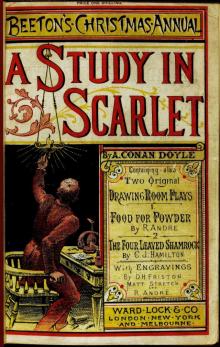 A Study in Scarlet
A Study in Scarlet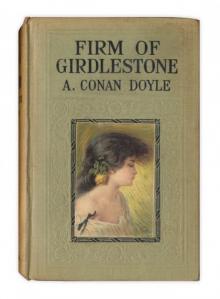 The Firm of Girdlestone
The Firm of Girdlestone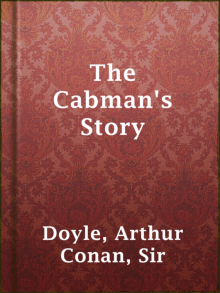 The Cabman's Story
The Cabman's Story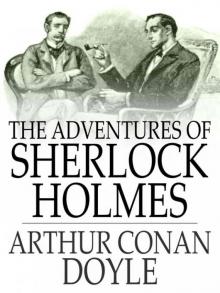 The Adventures of Sherlock Holmes
The Adventures of Sherlock Holmes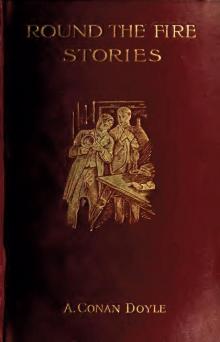 Round the Fire Stories
Round the Fire Stories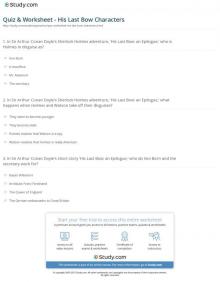 His Last Bow: An Epilogue of Sherlock Holmes
His Last Bow: An Epilogue of Sherlock Holmes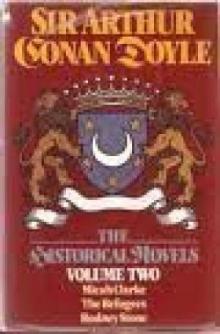 Micah Clarke
Micah Clarke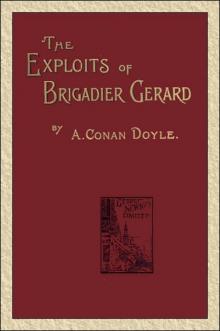 The Exploits of Brigadier Gerard
The Exploits of Brigadier Gerard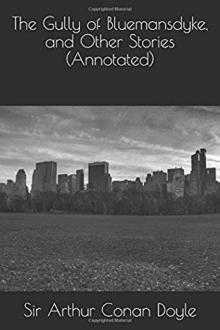 The Gully of Bluemansdyke, and Other stories
The Gully of Bluemansdyke, and Other stories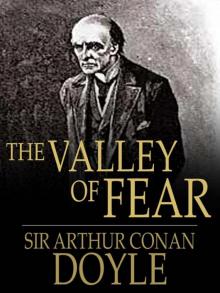 The Valley of Fear
The Valley of Fear The Last of the Legions and Other Tales of Long Ago
The Last of the Legions and Other Tales of Long Ago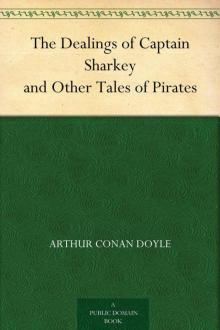 The Dealings of Captain Sharkey, and Other Tales of Pirates
The Dealings of Captain Sharkey, and Other Tales of Pirates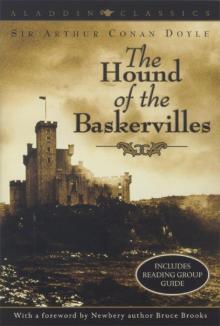 The Hound of the Baskervilles
The Hound of the Baskervilles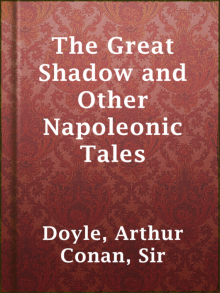 The Great Shadow and Other Napoleonic Tales
The Great Shadow and Other Napoleonic Tales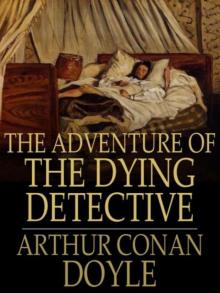 The Adventure of the Dying Detective
The Adventure of the Dying Detective The Man from Archangel, and Other Tales of Adventure
The Man from Archangel, and Other Tales of Adventure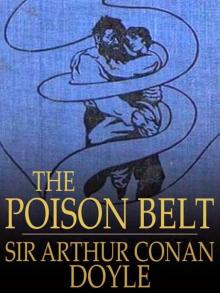 The Poison Belt
The Poison Belt The Last Galley; Impressions and Tales
The Last Galley; Impressions and Tales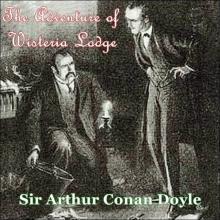 The Adventure of Wisteria Lodge
The Adventure of Wisteria Lodge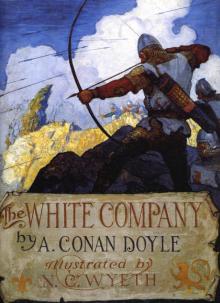 The White Company
The White Company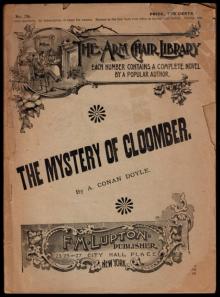 The Mystery of Cloomber
The Mystery of Cloomber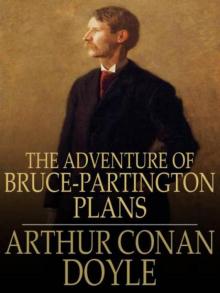 The Adventure of the Bruce-Partington Plans
The Adventure of the Bruce-Partington Plans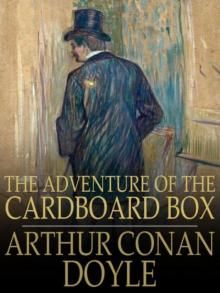 The Adventure of the Cardboard Box
The Adventure of the Cardboard Box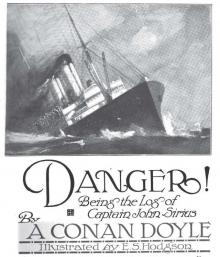 Danger! and Other Stories
Danger! and Other Stories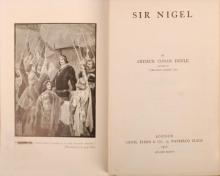 Sir Nigel
Sir Nigel The Return of Sherlock Holmes
The Return of Sherlock Holmes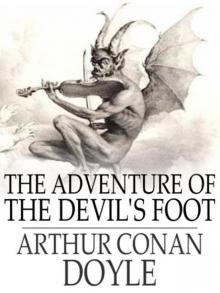 The Adventure of the Devil's Foot
The Adventure of the Devil's Foot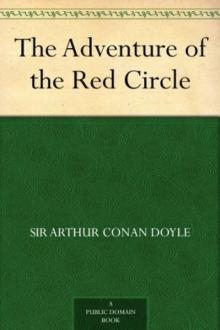 The Adventure of the Red Circle
The Adventure of the Red Circle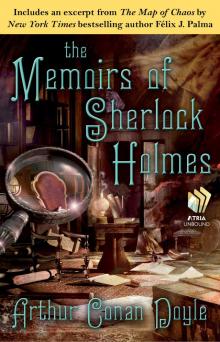 The Memoirs of Sherlock Holmes
The Memoirs of Sherlock Holmes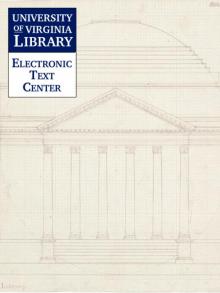 The Adventure of the Yellow Face
The Adventure of the Yellow Face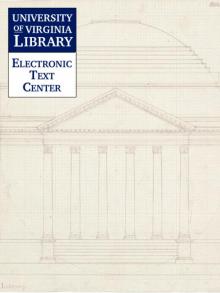 The Adventure of the Norwood Builder
The Adventure of the Norwood Builder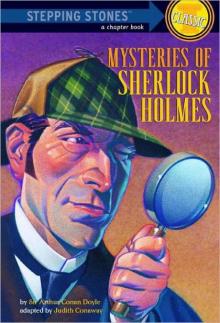 Mysteries of Sherlock Holmes
Mysteries of Sherlock Holmes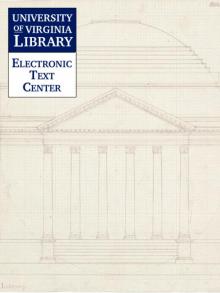 The Adventure of the Missing Three-Quarter
The Adventure of the Missing Three-Quarter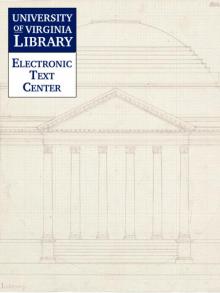 The Adventure of the Final Problem
The Adventure of the Final Problem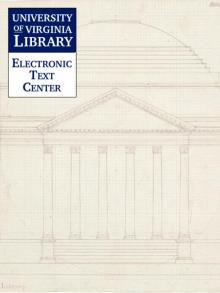 A Scandal in Bohemia
A Scandal in Bohemia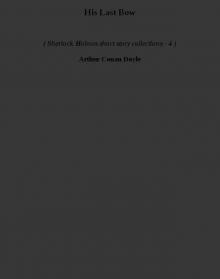 His Last Bow shssc-4
His Last Bow shssc-4 Beyond The City
Beyond The City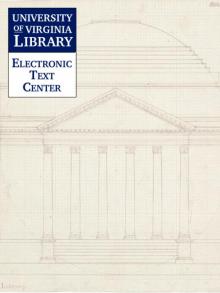 The Adventure of the Gloria Scott
The Adventure of the Gloria Scott The Parasite
The Parasite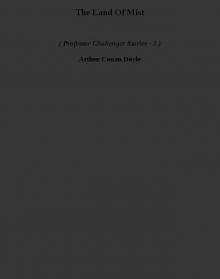 The Land Of Mist pcs-3
The Land Of Mist pcs-3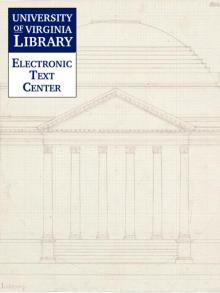 The Adventure of the Musgrave Ritual
The Adventure of the Musgrave Ritual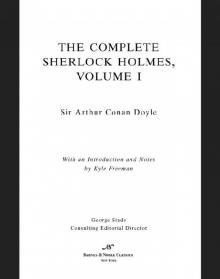 The Complete Sherlock Holmes, Volume I (Barnes & Noble Classics Series)
The Complete Sherlock Holmes, Volume I (Barnes & Noble Classics Series)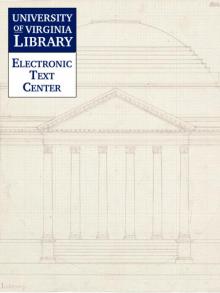 The Adventure of the Stockbroker's Clerk
The Adventure of the Stockbroker's Clerk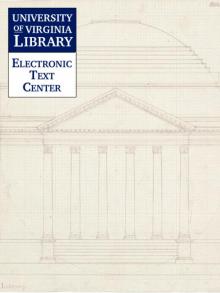 The Adventure of the Copper Beeches
The Adventure of the Copper Beeches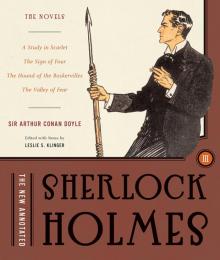 The New Annotated Sherlock Holmes
The New Annotated Sherlock Holmes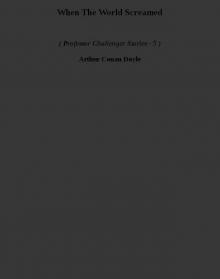 When The World Screamed pcs-5
When The World Screamed pcs-5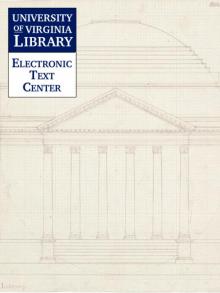 The Adventure of the Six Napoleons
The Adventure of the Six Napoleons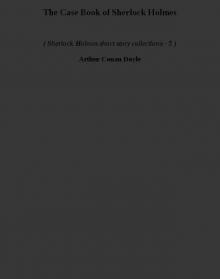 The Case Book of Sherlock Holmes shssc-5
The Case Book of Sherlock Holmes shssc-5 The Sign of Four
The Sign of Four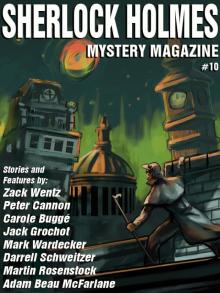 Sherlock Holmes Mystery Magazine #10
Sherlock Holmes Mystery Magazine #10 The Adventures of Brigadier Gerard
The Adventures of Brigadier Gerard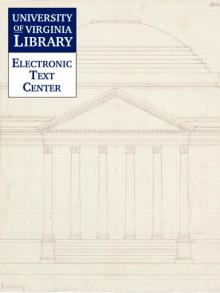 The Adventure of the Second Stain
The Adventure of the Second Stain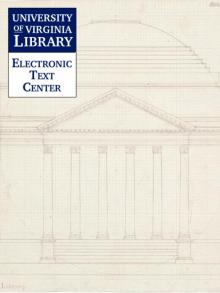 The Adventure of the Engineer's Thumb
The Adventure of the Engineer's Thumb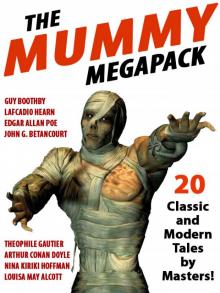 The Mummy Megapack
The Mummy Megapack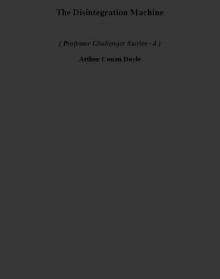 The Disintegration Machine pcs-4
The Disintegration Machine pcs-4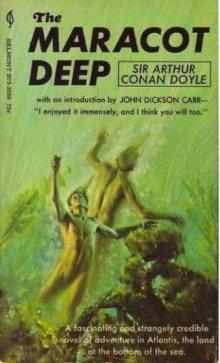 The Maracot Deep
The Maracot Deep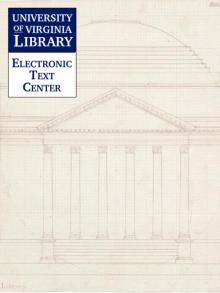 The Five Orange Pips
The Five Orange Pips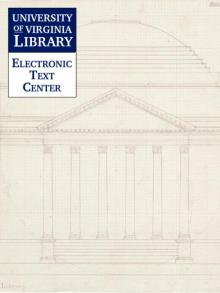 The Adventure of the Crooked Man
The Adventure of the Crooked Man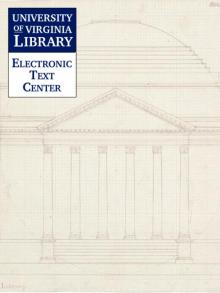 The Adventure of the Blue Carbuncle
The Adventure of the Blue Carbuncle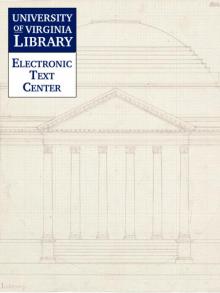 The Adventure of Silver Blaze
The Adventure of Silver Blaze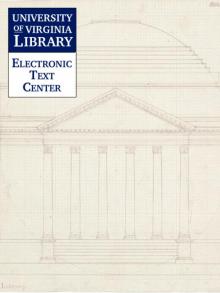 The Adventure of the Solitary Cyclist
The Adventure of the Solitary Cyclist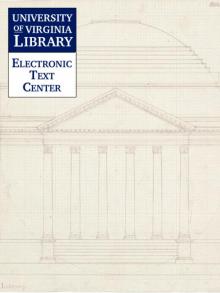 The Adventure of the Naval Treaty
The Adventure of the Naval Treaty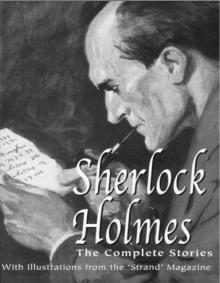 Sherlock Holmes. The Complete Stories
Sherlock Holmes. The Complete Stories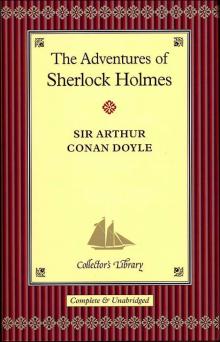 The Adventures of Sherlock Holmes (sherlock holmes)
The Adventures of Sherlock Holmes (sherlock holmes)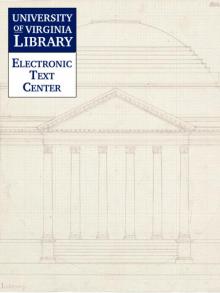 The Adventure of the Empty House
The Adventure of the Empty House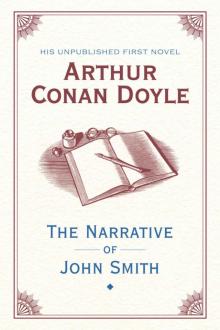 The Narrative of John Smith
The Narrative of John Smith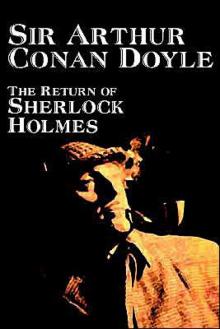 The Return of Sherlock Holmes (sherlock holmes)
The Return of Sherlock Holmes (sherlock holmes)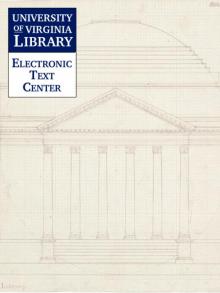 The New Revelation
The New Revelation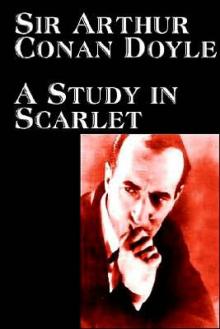 A Study in Scarlet (sherlock holmes)
A Study in Scarlet (sherlock holmes)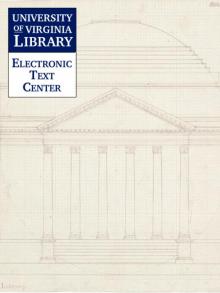 The Vital Message
The Vital Message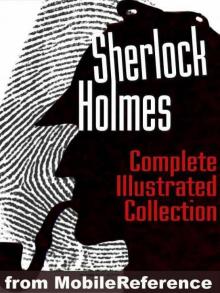 Sherlock Holmes Complete Collection
Sherlock Holmes Complete Collection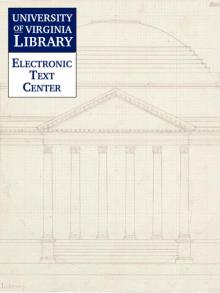 Round the Red Lamp
Round the Red Lamp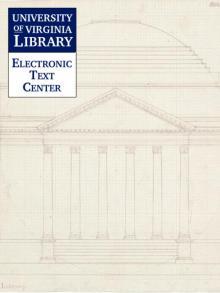 The Boscombe Valley Mystery
The Boscombe Valley Mystery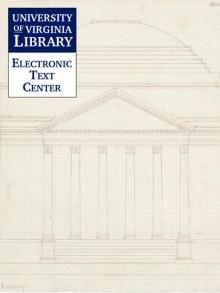 The Adventure of the Beryl Coronet
The Adventure of the Beryl Coronet The Refugees
The Refugees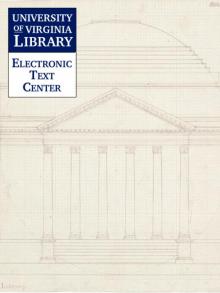 The Adventure of the Three Students.
The Adventure of the Three Students.